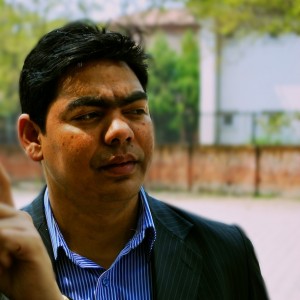Success
is something that all of us wish to attain. But if it were so easy, everyone
who wanted it would have it – it’s relative elusiveness is what makes it
special. It’s exclusive to a handful of people who did extraordinary things in
their lives to get them to where they are today. And it wasn’t because they
were lucky or because it was just handed to them.
Most successful people in
this world started from the bottom and worked their way up in life. The only
time luck plays a role is when you are in the right place at the right time,
but it’s up to you to get yourself there and then.
Being successful is all
about how badly you want it and how much you’re willing to work for it – it’s
about the traits you possess to help get you there. Do you have what it takes?
The best way to figure that out is to look at the traits
of extremely successful people and see how you can
begin adapting them into your life so that you
can eventually end up just like them.
1. They
Work Extremely Hard
Successful people
understand that without hard work you get nowhere in life. They know the basic
science of life: your input will equal your output. They don’t depend on luck
to get them anywhere, they depend on their skills and ambition to get them to
where they want.
They have sacrificed
everything to get to their position and will eat and sleep thinking about work.
It becomes a part of their life and even if they have to stay up for a few days
or be up at 5am every morning, they make sure they do it because they love it.
They will rarely complain
about how hard they are working because they know that all their hard work will
pay off. They expect the utmost from themselves — and when they are focused,
there is nothing that can stop them.
2. They
Are Incredibly Curious And Eager To Learn.
Most people are stubborn;
they don’t like to learn or explore new things and are very narrow-minded.
Successful people are the complete opposite. They are very open-minded and are
always studying something new, learning and constantly asking questions so that
they can find out more information.
They know that knowledge
is the backbone of success and they are hungry for more information because the
more they know the easier it makes it for them. They apply or take
advantage of what they learn in life. Successful people want to learn
everything about everything!
3. They
Network.
Your network is your net
worth, as the good old saying goes. They don’t have to be the life of the party
or the loudest one in the room. In fact they are usually quiet because they
move in silence rather then being too loud.
They are constantly
networking with others, exchanging information and asking people what they do
before they even ask their name. Successful people have a Rolodex full of
people who value their friendship and return their calls. In today’s world, it
is all about the people you know and how they help you get to where you want to
be.
4. They
Work On Themselves And Never Quit!
Peasants are stagnant,
they never grow and they get very comfortable with where their life is. The
truly successful people are the ones that are always working on themselves and
their lives. They are working on their personality, leadership
skills, management skills, as well as every other detail of life. Successful
people don’t tolerate flaws; they fix them.
5. They
Are Extraordinarily Creative.
There are those who just
accept everything in life and don’t like change and then there are successful
people who like to question the status quo and change things that are too
consistent. They go around asking, “Why not?” They see new possibilities
and opportunities where others see problems. They wake up in the middle of the
night yelling, “I’ve got it!” Successful people create stuff and innovate
things. They are the ones that change the world.
6. They
Are Self-Reliant And Take Responsibility.
Many people will find
things to shift blame towards or find excuses as to why they are not successful
so that they can make themselves feel better about the situation. All they are
doing is giving themselves bullshit reasons. Incredibly successful people
don’t worry about blame, and they don’t waste time complaining. They make
decisions and move on. Extremely successful people take the initiative and
accept the responsibilities of success.
7. They
Are Usually Relaxed And Keep Their Perspective.
Even in times of stress
or turmoil, highly successful people keep their balance. They breathe easy, ask
the right questions, and make sound decisions, even in a crisis. They
understand that when you let emotions get in the way of something, that’s when
it all goes down hill. Life is about dealing with problems and successful
people are the best problem solvers on planet earth because they don’t dwell on
it.
8.
Extremely Successful People Live In The Present Moment.
They know that “now” is
the only time they can control. Successful people don’t waste time; they use
it! They understand that the past is the past and they have learned from it.
The future is what will happen when they are exceling in their present.
They are always focused
on the current moment and don’t get lost in the game of time. They “look
over the horizon” to see the future. Extremely successful people live in
the present, with one eye on the future!
9.
Repeatedly Successful People Respond Instantly!
When technology, a new
competitor or a change in the economic situation requires an adjustment,
successful people are the first and quickest to respond. They don’t let things
drag on or take too long to do something. They understand that time is
everything…and that things need to happen fast.
10.
Successful People Never Quit
Most people in today’s
world will walk away from something because they find it too hard, whereas
successful people love challenges. They understand that if it were easy, they
wouldn’t want it and sacrifice it all to defeat the challenge at hand. They
would rather die than quit at what they are doing. Their goal is to be the best
always and to be on top because that is where their ambition and passion lies.












![Participants in the Empowering Dalit Daughters programme pose for a portrait. From left, Rebica Nepali, Hira Nepali, Sangita B.K., Pramila Bishunkhe, Anju Kadel and Barshaa Prakash, The programme provided scholarships, food and accommodation to 25 Dalit girls from across Nepal. [Photos courtesy of Professional Development and Research Centre (PDRC)]](http://khabarsouthasia.com/shared/images/2013/06/03/130603-SURATH_IN_DALITSCHOLARS1-310_207.jpg)









